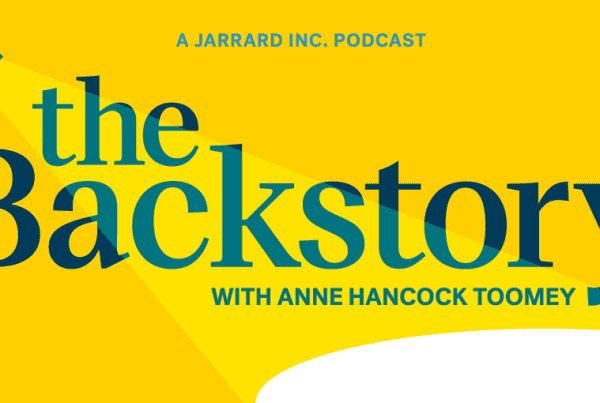Note: This piece was originally published over the weekend in our Sunday newsletter. Want content like this delivered to your inbox before it hits our blog? Subscribe here.
3-minute read / 20-minute podcast
The Big Story: Brian Flores sues NFL, three teams as former Miami Dolphins coach alleges racism in hiring practices
The recently-fired head coach of the Miami Dolphins just rocked the sports world with a class action lawsuit alleging systemic racism, disparate hiring practices and incentivizing losing. The NFL came back with a near-instant response saying that Flores’ accusations were “without merit.” Dolphins owner Stephen Ross has responded with a statement that includes the very legal terminology of “false, malicious and defamatory.” Then on Saturday, the NFL sent around a memo saying the organization was bringing in outside council to review its policies.
Why We’re Writing About It
Why, indeed, is a healthcare communications firm writing about a lawsuit against the NFL?
Because this story encapsulates so much of the work we do, the advice we give and the best practices for how – or how not – to communicate in a crisis. Because sometimes it’s good to look at outside examples to shake us loose and give a fresh perspective on long-standing principles.
Principles such as…
Check your story. Remember all those times we’ve written about how hospitals need to be proactive and tell the story of the good they do for their community? Or, if faced with scrutiny, respond with a compelling story? If so, you’ll also remember the warning that comes along with it: Make sure the story you tell is consistent with what’s actually happening inside your organization. For instance, a hospital can’t brag about helping patients navigate their healthcare finances when they’re suing them for nonpayment.
In the NFL’s case, the organization’s immediate response of calling the accusations “without merit” looks rash since it came within hours of the filing. Was that really enough time to have actually gone through the dozens of pages and confirmed that they were in fact without merit? Put another way, are the NFL and three teams being sued REALLY sure that they’re not behaving as accused?
Take time. Inherent to checking the story is that it takes time to do so. The NFL probably could have afforded to wait just a breath before releasing it’s “without merit” statement. Is it a crisis? Yes. Could they have taken a little longer to review the claims and craft a better message rather than one that looks like it was copied and pasted from some sort of “In Case of Lawsuit Break Glass” document? Also, yes. If you find yourself in a crisis, don’t wait around. But don’t go so fast that you rush past a meaningful response.
On Saturday, the NFL did in fact commit to “reassess and modify” the way it goes about things. But coming days after the initial, definitive statement instead of being the first thing released by the NFL, the memo opened the door for additional skepticism.
Prepare. We’re not talking copy-paste here. But you need to have a crisis plan in place with the basic blocking and tackling components. Think general talking points, FAQ, list of potential spokespeople, overarching underlying message. Armed with that, you can use those critical first moments of a crisis to review and home in on the situation. You’re not going to recycle the same talking points for every situation. But having a plan built around the tools needed and the underlying, mission-based message that you’ll want to convey no matter what is the difference between reflexively saying, “Nothing to see here!” and “We’re committed to serving our community and want to ensure that our actions reflect that. We’ll be investigating <XYZ> thoroughly. In the meantime, here’s what we know right now.” Again, it’s the difference between the NFL’s initial statement and the Saturday memo. Better to start with the latter and not backpedal into it.
Know the limits of your credibility. In addressing a crisis, consider your community’s perception of your organization’s reputation. We all know the NFL doesn’t have the best history when it comes to responding to explosive allegations. Their handling of the concussion scandal (which also included an ugly element of racial bias) and various instances of violence and abuse by players has left the organization without much reservoir of good will. Or benefit of the doubt. That’s another reason the instantaneous “without merit” comment looks hollow. Better, perhaps, to acknowledge previous missteps and use that as a foundation to talk about what comes next.
Know the difference between the people and the organization. This is the White Coats vs Dark Suits element. People love their docs. They love their local hospitals. But they lean skeptical about the big business of healthcare. Likewise, in the NFL, people love their team and particular players on it. But then there’s the perception of the organization, the impression that it often cares more about protecting the brand than doing the right thing, its Big Business operations that burn through trust and credibility. The appreciation the public has for the people doing the work – players/caregivers – doesn’t necessarily radiate out to good feelings for the organization – NFL/hospital. If the organization behaves badly, it won’t have much cover from the individuals.
And so here, we see a highly successful and credible voice who has worked at every level of an organization over the course of two decades. He’s making a powerful, emotional and specific accusation. However it all plays out, the NFL reminds us of the two-fold process facing an organization under scrutiny: First, of course, is actually doing the work and doing the right thing. And then it also means taking the time to communicate in a way that is consistent with the stated mission and values of the organization…or risk leaving room for the implication that those aren’t really the mission and values at all.
This piece was originally published over the weekend in our Sunday Quick Think newsletter. Fill out the form to get that in your inbox every week.




